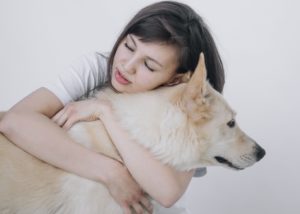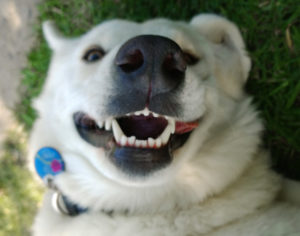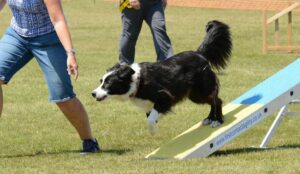Hernias in dogs are relatively common so if you suspect your dog might be suffering from this condition you need to first understand what dog hernia is as well as the possible treatment and outcomes.
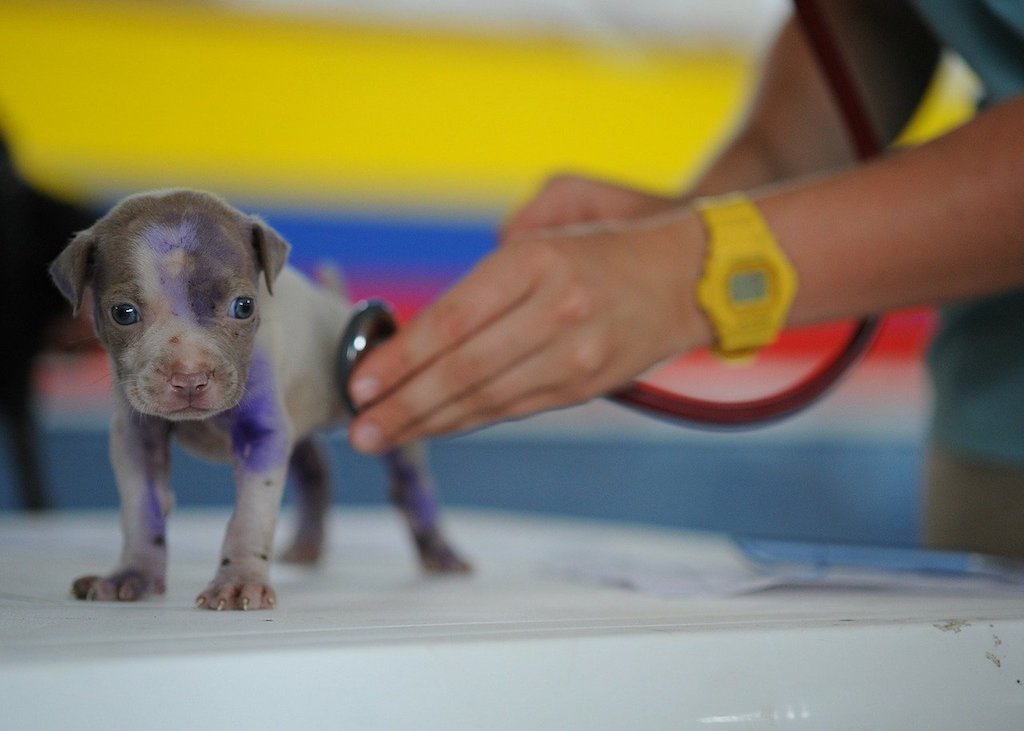
Like humans, dogs suffer from hernias too, though this condition occurs in puppies. While some are born with a hernia, others develop it because of trauma, such as getting hit by a vehicle or abuse.
Since you’re taking the canine’s responsibility very seriously, it is best to learn all the different factors related to hernias, the symptoms, causes, diagnosis, treatment, and prevention. So, your dog or puppy can continue to be healthy and well-loved!
What is Dog Hernia?
Regardless of the type of hernia your dog may have, be assured that they are treatable. Nevertheless, the point stands that you diagnose the hernia early enough before it becomes life-threatening.
To understand which hernia your dog may have, here are the five most common hernias that occur in dogs.
Types of Dog Hernia
Umbilical Hernia
An umbilical hernia is most commonly found in puppies. This hernia is congenital and is mostly found in place of the belly button. The protrusion is squishy, but it doesn’t hurt the puppy too much. Typically, this type of hernia goes away on its own, though some hernias require surgical removal when the puppy gets neutered or spayed.
The hernia doesn’t go away on its own. If left untreated, it causes complications in the future, so pet parents should keep an eye out for it.
Inguinal Hernia
An inguinal hernia occurs in the groin area, mostly near the back legs’ inner walls, where the skin meets the body. This type of congenital hernia differs in size – if it’s small enough, it doesn’t cause as much problem. But if the hernia’s opening is large, that causes portions of the bladder and intestine to become stuck. And that creates a life-threatening situation.
Inguinal hernia is common in female dogs, typically middle-aged, and more commonly when pregnant. For this, surgery is the only option.
Hiatal Hernia
A hiatal hernia is also congenital but can occur as a result of trauma. It occurs when a portion of the esophagus joins the stomach or pushes into the diaphragm.
Hiatal hernia is very uncomfortable and can cause difficulties such as vomiting, difficulty breathing, and excessive salivation. This hernia can be resolved with medical treatment, but it may require surgery if the condition is severe or chronic.
Diaphragmatic Hernia
A diaphragmatic hernia in dogs is congenital. But unfortunately, it also occurs if the dog is injured by a moving vehicle or through heavy impact.
This hernia occurs when a hole appears in the dog’s diaphragm. Remember that this muscle separates their heart and lungs from their other abdominal organs. When the hernia occurs, the hole causes those organs to slip into the chest cavity, causing undue pressure. If that happens, your dog may start losing weight very quickly. They may also have trouble breathing and will become worse as time goes.
Surgical treatment is the only option for treating a diaphragmatic hernia. But if the condition had been present for a long time, your dog may require extra care and observation to ensure that no fluids accumulate in the lungs.
Perineal Hernia
A perineal hernia occurs when the muscles in the pelvis tear, causing the abdominal contents to enter the cavity near the anus. This is a very painful and uncomfortable condition and requires immediate treatment.
It’s crucial that if you have certain small breeds such as boxers, collies, or Boston Terriers, you have them neutered before the age of five to ensure that they don’t end up getting a hernia.
How Do I Know if My Dog Has a Hernia?
Unlike cats who like to hide their discomfort, dogs are pretty straightforward, showing when they’re feeling unwell.
You’ll notice a lack of appetite and energy. They’ll be less likely to move around and will whine more when you try to pick them up. They’ll also become short-tempered and irritable. Alongside, they will also show other physical symptoms that’ll indicate a hernia, such as:
- Shortness of breath
- Swelling
- Coughing
- Leg numbness
- Cramping
- Vomiting
- Excessive drooling
- High fever
- Lethargy
If your dog or puppy exhibits these symptoms, check for a soft, bubble-shaped mass that protrudes from their body. It’ll be located near their groin or belly button region. If you see any such growth, get your dog to the emergency doctor straight away.
How to Diagnose a Hernia in Dogs?
Hernia in dogs requires professional medical treatment and surgery.
Your dog will not be able to outgrow a hernia. Neither will the hernia heal over time by itself. Leaving a hernia untreated will only cause excessive pain and lead to medical complications, and may even become life-threatening.
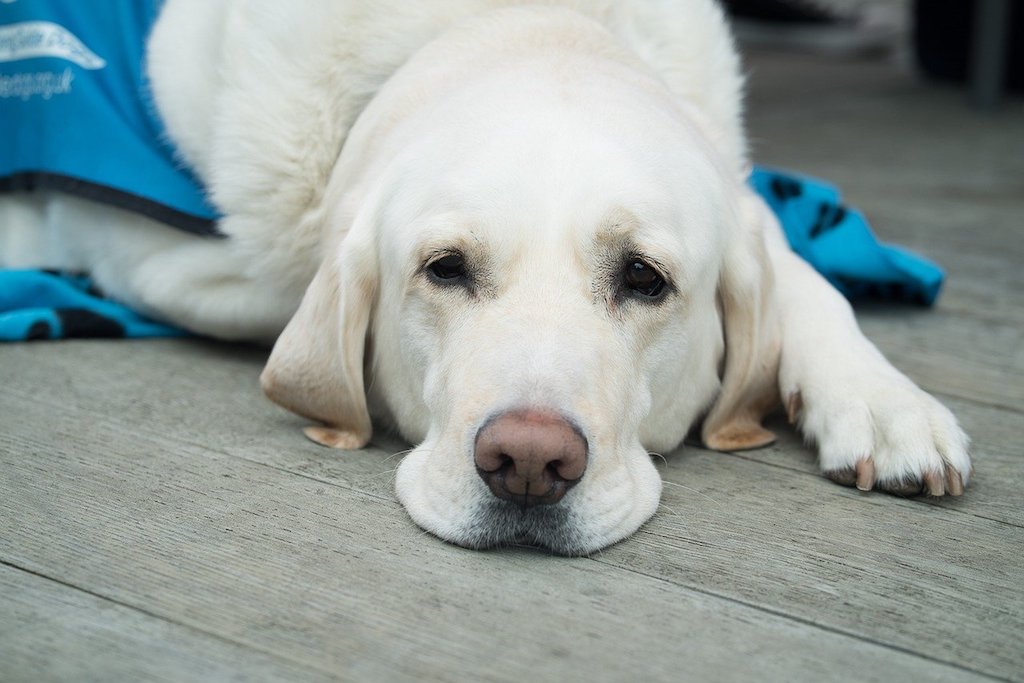
As such, if you suspect that your dog has a hernia, take them to the vet and have them diagnose the condition.
During a physical examination, the vet will check the dog’s abdomen and groin region by applying slight pressure around the hernia. They will also take an x-ray of the abdominal region. This is to check whether the hernia is pushing the vital organs or if the abdominal organs are spilling through the herniated area.
In case of an inguinal or umbilical hernia, a palpating checkup should give us the answer. If the hernia is hiatal or diaphragmatic, the vet will also take an ultrasound. That will help the vet determine where the hernia is situated and how it has displaced the organs.
What is the Best Treatment for Hernia in Dogs?
Ultimately, your dog or pup will require surgery to remove the hernia.
The herniated tissue requires closing and repair, so it does not open again. For that, your dog will need sutures and special care afterward.
Be warned that the severity of the surgery depends on the hernia condition, so you will need to be prepared. The surgery could require more time and be more challenging if there is excessive organ damage or if your dog isn’t healthy. Get in touch with your vet as soon as possible if you notice any such symptoms.
When it comes to treating hernias in dogs, time is of the essence.
Risks of Surgery
There are some common risks. The incision may get ruptured, bleeding could occur, or the incision could become infected.
After surgery, keep your dog calm and still. Monitor them for any signs of rupture or infection and keep an eye on the incision. If the incision becomes red or feels warm when touched, or if there is any discolored discharge, this may mean that the incision is infected, and you will need to notify your vet for further instructions.
In the case of umbilical hernias, your vet will suggest that you have the hernia repaired when your dog is spayed or neutered. This is done to avoid your pup having multiple surgeries.
But if an adult dog develops a hernia, your vet will recommend surgery to prevent further tears. This is in the case of both small and large hernias since hernias can tear open and cause life-threatening complications. In any case, follow your vet’s recommendation since they will know the best course of action.
Post-Surgery Care For Dogs with Hernia
After their surgery, the vet will provide your dog with pain-relief medication. However, once you bring your dog home, it’ll be up to you to keep them still and calm for at least ten days. Because of the stitches, they will not be allowed to jump, run, or play. They will also have to wear a collar to prevent them from chewing and licking the incision.
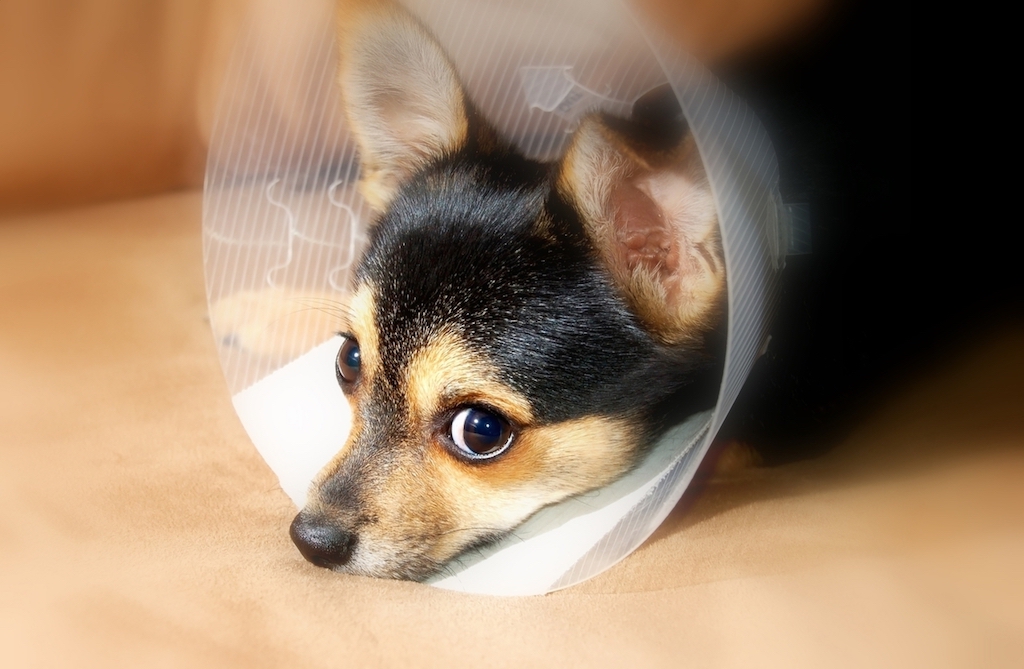
While these ten days will be difficult for them (and you), this effort will pay you back when your dog becomes healthy, and the sutures are removed or dissolve. Keep the incision site clean and keep your dog indoors, so they don’t get any dirt or mud on the area.
This may be the best time to give them some special treats and love.
Can You Prevent Hernia in Dogs?
Unfortunately, there’s no real way you can prevent a hernia in dogs. Because of their congenital trait, a hernia can occur in almost any dog without your knowledge or theirs. The only thing you can do is have the hernia treated in time so it does not cause them more harm.
Additionally, keep them safe and in your sight when walking them outdoors, and get your dog spayed or neutered at the right time. While it won’t entirely prevent your dog from ever getting a hernia, it will assure you that you’re doing all you can.
Vet – the only option for hernias
Always take your dog to the vet if you notice any bumps or lumps on their body. Dogs are not meant to have nodes, and hernias, as stated earlier, do not heal on their own. If you ever notice one, your vet should be your only destination. That’s the only way you’ll keep your dog happy, healthy, and thriving!


